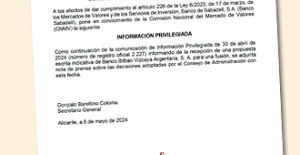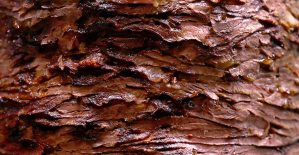He, whose long wall the wand'ring Tartar bounds ...
I read a few days ago that the man who ordered the construction of the almost infinite chinese wall was the same the first Emperor, Shih Huang Ti, who likewise ordered all the books from before his time would be burned. The idea that these two huge companies – those between two hundred and fifty and three hundred miles of stone which were erected against the barbarians, and the rigorous nature of the annulment of the story, that is to say, the past – came from a person and in no way was his attributes, gave me an inexplicable pleasure, at the same time as it gave me discomfort. It is to explore the reasons for this feeling I write these lines.
The first chinese emperor Shih Huang Ti orders the bokbränning. Photo: Rights ManagedHistorically, it is nothing remarkable with either of the measures. It was at the same time with the punic wars, that the king of Tsin, Shih Huang Ti, who in the six kingdoms and the abolition of the abolition of feudalism. He traveled the wall because walls were fortifications, and he burned the books because the opponents invoked them to praise the previous emperors. It is normal that the princes of burning books and building fortifications; it's unparalleled with Shih Huang Ti was the only scale he did it.
all cases, what some sinologists tend to argue, but I believe that the facts I have shared above is something more than just an exaggeration or hyperbol of trivial institutions. To enclose a garden or an orchard is normally, but not to enclose an empire. To do to his determination to get the most traditional of the people to forsake the memory of their history, be it mythical or real, is not a trivial matter. The chinese had three thousand years of chronology (a chronology which included The Yellow Emperor, Chuang Tzu, Confucius, and Lao Tzu) when Shih Huang Ti decided that history would begin with him.
Shih Huang Ti had landsförvisat his mother skörlevnad; in the ortodoxas eyes was his harsh judgment is nothing other than wickedness. Maybe wanted to Shih Huang Ti wipe out the canonical scriptures, because they contended with him; maybe wanted to Shih Huang Ti to erase the whole past, to erase one single memory: his mother's infamy. (On a not unlike the way had a king, in Judea, allowed to murder all the infants in order to kill a single one.)
This assumption is reasonable, but it gives us no explanation for the wall, the mythical other side. According to the historians, forbade Shih Huang Ti that you mentioned the death, he sought immortality elixir and shut himself in a figurative palace containing as many rooms as there are days in the year. These circumstances suggest that the wall in the room and the fire in time were magic barriers to keep death at a distance. All things to consist in their being, wrote Baruch Spinoza; perhaps the thought of the Emperor and his timbres that immortality is constitutive and that the decay is not able to penetrate a closed world. Maybe wanted the Emperor to recreate the beginning of time and called himself The First to really be the first, Huang Ti in order to in some way Huang Ti, the legendary emperor who invented writing and the compass.
that, according to the ”As the book”, gave things their true name. Similarly, in inscriptions composed than in the day, took Shih Huang Ti the credit for all things under his rule, had received the name of them, and vederbör. He dreamed of founding an immortal dynasty; he ordered that his successor would be named Second Emperor, Third Emperor, Fourth Emperor, and so on to infinity...
I talked about a magical purpose. One could also surmise that the construction of the wall, and the burning of the books were not simultaneous acts. This would (depending on which order we imagine) give the image of a king who began by destroying and then found himself in the preserve, or of a disillusioned king who destroyed what he had previously defended. Both explanations are dramatic but lack, as far as I know, historical fact. Herbert Allen Giles tells us that those who hid the books were tagged with annealed iron and was sentenced to life by helping to build the great wall. This task provides nourishment to or evidence for a different interpretation.
Perhaps the wall was a metaphor, perhaps, judge Shih Huang Ti those who worshipped the past to a work just as vast as the past, as monotonous and pointless. Perhaps the wall was a challenge and Shih Huang Ti thought: ”Men love the past and against this love, I find nothing to do, and neither my executors, but one day there will a man who knows who I am, and he will destroy my wall, as I have destroyed books, and he will efface my memory and be my shadow and my reflection in the mirror, and he will not know about it.” Perchance masonry Shih Huang Ti in the empire because he knew that he was weak and destroyed the books because he knew they were saints, that is to say, books that teach what the entire universe or any single person's consciousness teaches us. Perchance is the burning of the libraries and the construction of the wall acts in a hidden way cancel each other.
as of this moment, and all moments, casts its skuggmönster over the chips which I never shall see, is the shadow of a Caesar who ordered that the most reverent of nations burn its past. It is likely the idea in and of itself which concerns us, independent of the hypotheses it provides space for. (Its value lies in the antithesis between to make and to destroy in giant scale.) If we generalize from here, we could infer that all forms have their value in themselves and not in an imagined ”content”.
This would be in line with the Benedetto Croces tes; already named to the pater, 1877, he claimed that all the arts strive for the music condition, which is not other than form. The music, the joyful manifestations, mythology, faces which skulpterats of the time, some of the county council, and some places, all they want to tell us something, or they told us something we should not have forgotten, or they are about to say something; this immediate presence of a revelation that does not take place is, perhaps, the esthetic event.
Buenos Aires, 1950
the Translation from the Spanish: Oscar Hemer.

 Sabadell rejects the merger with BBVA and will fight to remain alone
Sabadell rejects the merger with BBVA and will fight to remain alone In Germany, the far left wants to cap the price of “doner kebabs”
In Germany, the far left wants to cap the price of “doner kebabs” Israel-Hamas war: Gaza between hope of truce and fear of Israeli offensive in the South
Israel-Hamas war: Gaza between hope of truce and fear of Israeli offensive in the South “Mom, Dad, please don’t die”: in the United States, a nine-year-old child saves the lives of his parents injured in a tornado
“Mom, Dad, please don’t die”: in the United States, a nine-year-old child saves the lives of his parents injured in a tornado The presence of blood in the urine, a warning sign of bladder cancer
The presence of blood in the urine, a warning sign of bladder cancer A baby whose mother smoked during pregnancy will age more quickly
A baby whose mother smoked during pregnancy will age more quickly The euro zone economy grows in April at its best pace in almost a year but inflationary pressure increases
The euro zone economy grows in April at its best pace in almost a year but inflationary pressure increases Children born thanks to PMA do not have more cancers than others
Children born thanks to PMA do not have more cancers than others “House of the Dragon”, “Succession”… Max, the new streaming platform from HBO and Discovery, launched in France on June 11
“House of the Dragon”, “Succession”… Max, the new streaming platform from HBO and Discovery, launched in France on June 11 The A13 motorway will finally reopen this Friday, in one direction only
The A13 motorway will finally reopen this Friday, in one direction only TNT commission of inquiry: tensions between LFI deputies and Macronists before the vote on the report
TNT commission of inquiry: tensions between LFI deputies and Macronists before the vote on the report Apple unveils a new, more efficient iPad range
Apple unveils a new, more efficient iPad range The Gaza War invites itself to the 2024 Pulitzer Prizes
The Gaza War invites itself to the 2024 Pulitzer Prizes Judith Godrèche presents a short film on sexual violence in Cannes
Judith Godrèche presents a short film on sexual violence in Cannes Kevin Spacey: new trial in sight in London for the American actor, for sexual assault
Kevin Spacey: new trial in sight in London for the American actor, for sexual assault Taylor Swift fans make London pub Black Dog their new place of pilgrimage
Taylor Swift fans make London pub Black Dog their new place of pilgrimage Omoda 7, another Chinese car that could be manufactured in Spain
Omoda 7, another Chinese car that could be manufactured in Spain BYD chooses CA Auto Bank as financial partner in Spain
BYD chooses CA Auto Bank as financial partner in Spain Tesla and Baidu sign key agreement to boost development of autonomous driving
Tesla and Baidu sign key agreement to boost development of autonomous driving Skoda Kodiaq 2024: a 'beast' plug-in hybrid SUV
Skoda Kodiaq 2024: a 'beast' plug-in hybrid SUV The home mortgage firm rises 3.8% in February and the average interest moderates to 3.33%
The home mortgage firm rises 3.8% in February and the average interest moderates to 3.33% This is how housing prices have changed in Spain in the last decade
This is how housing prices have changed in Spain in the last decade The home mortgage firm drops 10% in January and interest soars to 3.46%
The home mortgage firm drops 10% in January and interest soars to 3.46% The jewel of the Rocío de Nagüeles urbanization: a dream villa in Marbella
The jewel of the Rocío de Nagüeles urbanization: a dream villa in Marbella Institutions: senators want to restore the accumulation of mandates and put an end to the automatic presence of ex-presidents on the Constitutional Council
Institutions: senators want to restore the accumulation of mandates and put an end to the automatic presence of ex-presidents on the Constitutional Council Europeans: David Lisnard expresses his “essential and vital” support for François-Xavier Bellamy
Europeans: David Lisnard expresses his “essential and vital” support for François-Xavier Bellamy Facing Jordan Bardella, the popularity match turns to Gabriel Attal’s advantage
Facing Jordan Bardella, the popularity match turns to Gabriel Attal’s advantage Europeans: a senior official on the National Rally list
Europeans: a senior official on the National Rally list These French cities that will boycott the World Cup in Qatar
These French cities that will boycott the World Cup in Qatar “The future is for us”: “disappointed” and “proud” at the same time, Al-Khelaïfi sees the glass half full after the elimination of PSG
“The future is for us”: “disappointed” and “proud” at the same time, Al-Khelaïfi sees the glass half full after the elimination of PSG PSG: “Since January, these have not been my best matches,” agrees Zaire-Emery, who promises to “come back stronger”
PSG: “Since January, these have not been my best matches,” agrees Zaire-Emery, who promises to “come back stronger” “What is this question, honestly?” : Nasser Al-Khelaïfi (very) annoyed after PSG-Dortmund
“What is this question, honestly?” : Nasser Al-Khelaïfi (very) annoyed after PSG-Dortmund “I am the guy who has to score the goals”: Mbappé does not hide and assumes responsibility after PSG’s exit
“I am the guy who has to score the goals”: Mbappé does not hide and assumes responsibility after PSG’s exit


















